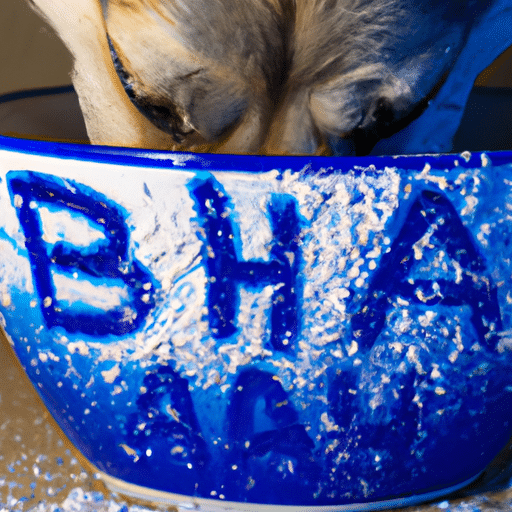BHA in Dog food? Is this even safe?
Reading Time: 3 minutesWe all want to believe that the food we’re feeding our dogs is safe and healthy. But what if I told you that there’s a good chance your dog’s food contains a harmful chemical? That chemical is called BHA, and it’s been linked to cancer in rats. The FDA considers it safe for human consumption but not for dogs. So, could dog food contain BHA? And if so, is your dog at risk?
BHA in dog food
BHA is a dog food preservative. It causes tumors in lab animals, and California lists it as a carcinogen. BHA is added to dog food to preserve fats so it can stay on store shelves longer than foods without additives. The FDA says BHA is safe for dog food, but safer alternatives exist. Additionally, the FDA allows this potentially carcinogenic additive only to preserve the life of fats found in manufactured dog foods; it should not be used as a general preservative for all ingredients or for prolonged shelf life.
Therefore consumers should be aware of which foods contain BHA so they can make informed decisions about what they feed their pets and avoid possible health risks associated with this chemical preservative.
Other synthetic preservatives
Other synthetic preservatives commonly used in food products include Butylated Hydroxyanisole (BHA) and Butylated Hydroxytoluene (BHT), Potassium Sorbate Ethoxyquin Propyl Gallate Benzoic Acid Sodium Benzoate Natamycin Calcium Propionate Sorbic Acid Citric Acid Sodium Nitrite Sodium Nitrate Hexamethylene Tetramine.
Natural Preservative Alternatives
Some natural preservative alternatives include vitamins C and E, rosemary oil, and ascorbic acid. Vitamin C can be found in citrus fruits or broccoli, while vitamin E is found in nuts and seeds. Rosemary oil can preserve food without harmful chemicals, while ascorbic acid is commonly derived from vitamins C and E and is considered safe for canine consumption.

BHA is listed on dog food labels
BHA is listed on dog food labels as butylated hydroxyanisole. This chemical is added to the food to preserve fats, extending its shelf life. BHA is allowed in dog food despite causing tumors in lab animals and being on California’s list of cancer-causing chemicals. BHA is listed as butylated hydroxyanisole on labels. Types of natural preservatives include vitamin C, vitamin E, rosemary oil, and ascorbic acid. Vitamin C and E are familiar sources of natural preservatives that can be found in many foods and products.
Types of natural preservatives
Rosemary oil is another popular natural preservative used to preserve foods without the risks associated with synthetic alternatives. Ascorbic acid is also known as vitamin C powder or calcium ascorbate and is commonly used in canned dog food recipes to help extend shelf life.
Why dog food contains BHA?
BHA is used to preserve and protect fats in dog food. It has been added to food products that contain fats since 1947, and manufacturers of dog foods have followed suit. BHA is an antioxidant for food ingredients if added in small amounts, keeping them fresh and safe from bacteria. Additionally, it keeps fats from going rancid or becoming stinky over time.
Alternatives to BHA
Some alternatives to BHA include vitamin E, rosemary extract, citric acid, ascorbic acid (vitamin C), lecithin, sodium bisulfite, and sodium metabisulfite. Additionally, many other natural preservatives can be used instead of synthetic ones. These include apple cider vinegar and lemon juice for acidic foods, honey for sweet foods, and clove oil or oregano oil for both types of food. BHA is a common additive in many dog foods, and while it is considered safe for human consumption, it may be harmful to your dog. If you are concerned about your dog’s health, check the list of ingredients in their food to see if BHA is present.
Sources
- https://ntp.niehs.nih.gov/ntp/roc/content/profiles/butylatedhydroxyanisole.pdf
- https://www.sciencedirect.com/science/article/pii/S0273230021000271
- 19 Toxic Foods That Could Kill Your Dog - June 9, 2023
- Owners of dogs are being cautioned due to the “very high” quantity of lead in dog food. - May 9, 2023
- BHA in Dog food? Is this even safe? - December 29, 2022
